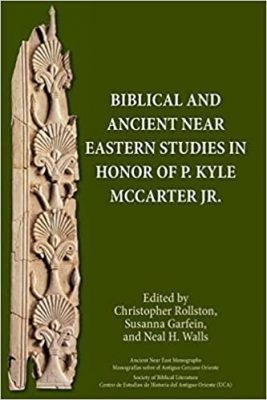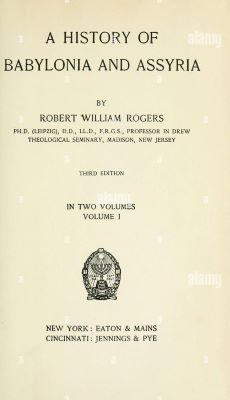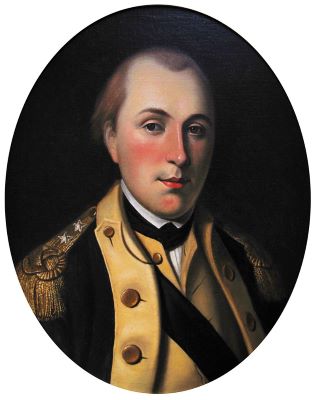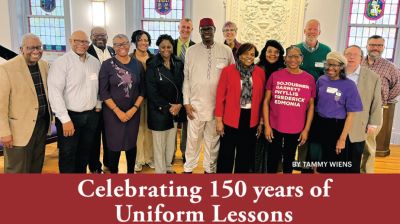
“Joseph and His Allies in Genesis 29” by Dan Fleming is a contribution to the new book Biblical and Ancient Near Eastern Studies in Honor of P. Kyle McCarter Jr. Previously I examined the contribution of Heath Dewrell on “Yahweh the Destroyer.” His scholarship complemented the existence of an historical Exodus although in his article he specifically disavowed any attempt to address the Exodus.
In this article, Fleming’s interest is “the particularity oddity of Joseph as the culmination of the birth sequence” in the Jacob material. He asserts that “the birth narrative leaves us with a political geography for the wife sequence sharply at odds with ordinary readings that are informed by the later equation of Jacob with Israel.” Unlike Dewrell, Fleming, makes no reference to the Exodus at all. However his study illuminates who the people of the Exodus were.
PEOPLES OF THE EXODUS
At various times in the writing of my book The Exodus: An Egyptian Experience I considered including chapter on the peoples of the Exodus. An overview of the proposed peoples would have included the following groups.
Amorite Hyksos Levites – This section drew on the work of Richard Friedman and Marc Leuchter on the violence associated with the Levites. They both saw an Egyptian connection. I expanded on their work in “A Hyksos Levite Led the Exodus in the Time of Ramesses II,” my contribution to Five Views of the Exodus (2021). It is from this group that the tradition of 400-year Delta/Land of Goshen sojourn originated in conjunction with the 400 Year Stela of Ramses II.
Canaanite Na’ar Ephraim – This military-based-component of ancient Israel derived from a special division created within the Egyptian army of Canaanites. They helped rescue Ramses II at Kadesh for which they received little credit since Ramses won the battle all by himself. One may speculate that some of their commanding officers were Hyksos. This group produced mighty archers who arms were made strong by the God of Jacob and the war leader Joshua. In early Israelite history they were always angling to be part of a battle.
Amorite Benjaminites – This also military-based component of ancient Israel brought a Mesopotamian perspective to the new people. The section would have drawn on the work of Fleming. They were more recent arrivals in Egypt (Habiru captives?) and possibly were integrated into the Egyptian police called Medjay which did not mean one had to be Nubian or black anymore.
Canaanite Manasseh/Machir – These non-warrior people had a dual identity. On the one hand they had been in Egypt. On the other hand, they consisted of people, families, and clans but not tribes in the land of Canaan who joined Israel once the latter arrived in the land. These people would have brought with them the experience of being slaves in the land of Canaan, an approach some scholars take for all of ancient Israel.
In the end, I did not write this chapter. It would have been too long in time and pages for the publisher. It also would have violated my self-imposed parameters of limiting the study of the Exodus to the Egyptian record and not becoming bogged down in biblical exegesis.
With this background in mind, let’s turn to what Fleming wrote.
THE TRIBES OF ISRAEL
Fleming alerts the reader that “we are constantly in danger of letting perspectives of later biblical contributors govern our interpretation because it has not occurred to us to imagine different realities below the surface of their work.” I suppose an historical Exodus would qualify here. In a footnote, he adds that in his previous book, The Legacy of Israel in Judah’s Bible: History, Politics, and the Reinscribing of Tradition, he addressed the birth narrative as setting the core for the Jacob story. “The analysis offered here examines what I now conclude to be a contrasting set of assumptions that underlie the fully formed Jacob narrative.”
Towards that end, he observes: “In the birth narrative itself, the three most prominent peoples of the central highlands are missing: Ephraim, Manasseh, and Benjamin.”
Fleming then analyzes the tribes of the birth narrative. He notes that it mainly concerns the half-brothers of Joseph. The tribes entail the political hub of the northern kingdom. These tribes identify with but are separate from Joseph. It is the family of Jacob where Joseph stands alone as the long-awaited son of Rachel.
JACOB’S JOURNEY
In the next section, Fleming addresses Jacob’s journey to Haran. The significance of the site of Bethel is examined. He repeats his observation about the story in the central highlands omitting the people otherwise located in this area: Ephraim, Manasseh, and Benjamin. He states that:
The separate genealogical explanation of Ephraim and Manasseh as sons of Joseph, and the idea that Benjamin was a second son of Rachel, both find ways to make sense of these familiar groups in relation to a story that ignored them.
He concludes that both Manasseh and Ephraim are presented as people separate from Joseph. He then declares:
Nothing in Gen 29:1-30:24 offers a clear geographical setting for its composition and transmission as a separate tale and text.
Fleming posits that the Jacob story comes from the central highlands. It reaches us by way of the scribes of the northern kingdom of Israel. He calls its perspective archaic. It precedes the incorporation of these “brother” peoples into a larger or Greater Israel. Chronologically, that means at least by the time of the 9th-century Omrides. There is nothing in it which would suggest a time of Assyrian intrusions into the land of Israel (or Syria). There is nothing in it that would suggest a time of tension between Israel and the Aramaeans such as at Damascus.
He concludes with:
Yet this is a text with deep historical interest and deep roots in the Bible’s past. Genesis 29-30 provides one biblical clue to the web of names and political alignments that underlay what finally coalesced as the ambitious kingdom of Israel, with a lesser Israel just one of those identities.
FLEMING AND THE EXODUS
This review does not do full justice to the article Fleming has written or the arguments he has proposed. My interest here is what it means for the Exodus or, rather, how the historical Exodus can contribute to understanding the family of Israel.
To do so, the following working hypothesis may be considered:
1. By the time of Thutmose III at the latest there existed peoples of Jacob-el and Joseph-el. What these two people did to warrant such honors has been lost in the mists of history. It is reasonable to conclude that Fleming’s family of Jacob goes back at least to the 15th century.
2. When Moses participated in Seti’s campaign in Canaan, he encountered these people. Seti does not mention them but it is reasonable to conclude that the El people opposed the Baal Egyptian rule. They saw themselves as slaves of Pharaoh in Egypt. Seti’s campaigns brought Moses in contact with both the Yahweh-worshiping Shasu and the El-worshiping Canaanites. Fortunately Ramses’s erasure of him was not complete otherwise that information would be lost. These contacts highlight the important of human agency in understanding the Exodus.
3. The Exodus consisted of the Levites, Benjaminites, Ephraimites, and Machir/Manasseh.
4. Once Israel was in the land of Canaan, the family of Jacob-el and other anti-Egyptian peoples became allies of Israel. They participated in the war against Rameses III (Sisera) as independent tribes and not as part of Israel but with a shared enemy.
5. There came a time when the family of Jacob decided it wanted to become part of Israel.
2 Samuel 5:1 Then all the tribes of Israel came to David at Hebron, and said, “Behold, we are your bone and flesh [BROTHERS]. 2 In times past, when Saul was king over us, it was you that led out and brought in Israel; and Yahweh said to you, `You shall be shepherd of my people Israel, and you shall be prince over Israel.'” 3 So all the elders of Israel came to the king at Hebron; and King David made a covenant with them at Hebron before Yahweh, and they anointed David king over Israel.
The expansion of Israel to include the family of Jacob-el necessitated changes.
Someone revised the Song of Deborah to emphasize the roles of Yahweh and Israel.
Someone created a “sons of Jacob” pericope. In my book Jerusalem Throne Games, I focused on the sons stories in Genesis 2-11. I situated them in the time of Solomon and named the authors and what they wrote. That process of writing continued on to include Genesis 29-30.
Someone decided to make Joseph a focal point of that pericope.
Someone decided to write the first version of the story of Joseph.
I recall decades ago sitting in the kitchen of Kyle McCarter. He was standing, leaning against the counter or refrigerator. We were talking about David and who had authored His to Power. I said, “Abiathar.” I now realize he was writing in the time of Saul, David, and Solomon as well. Someone should write a book about him.





